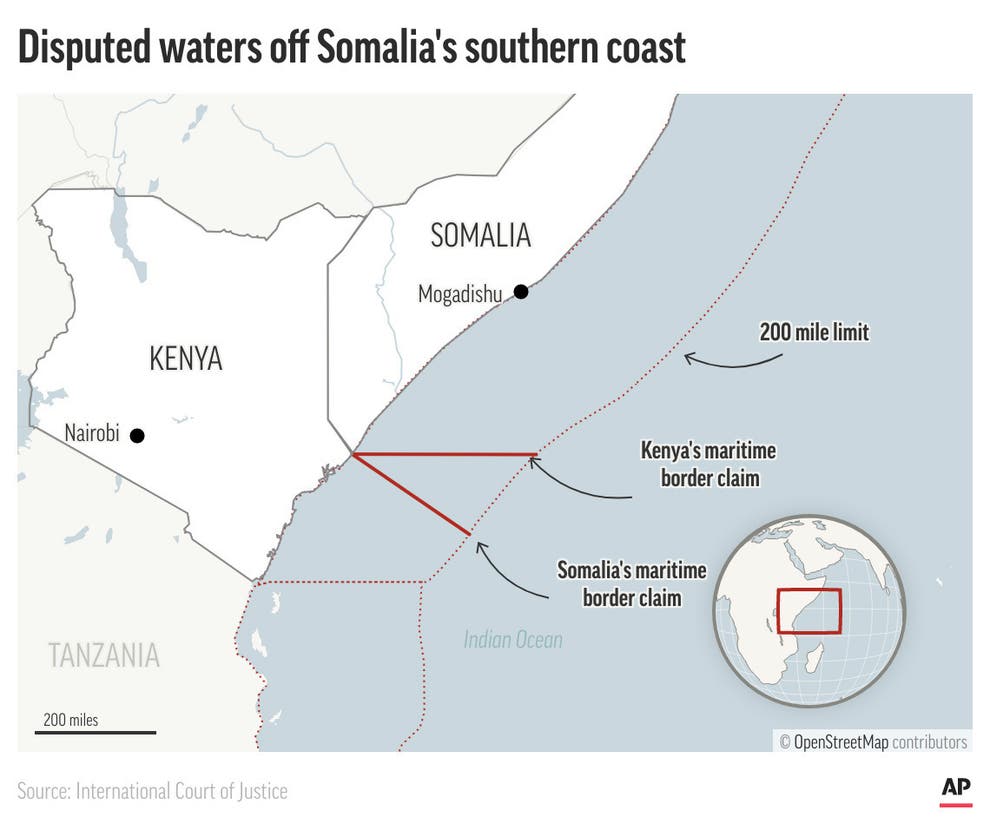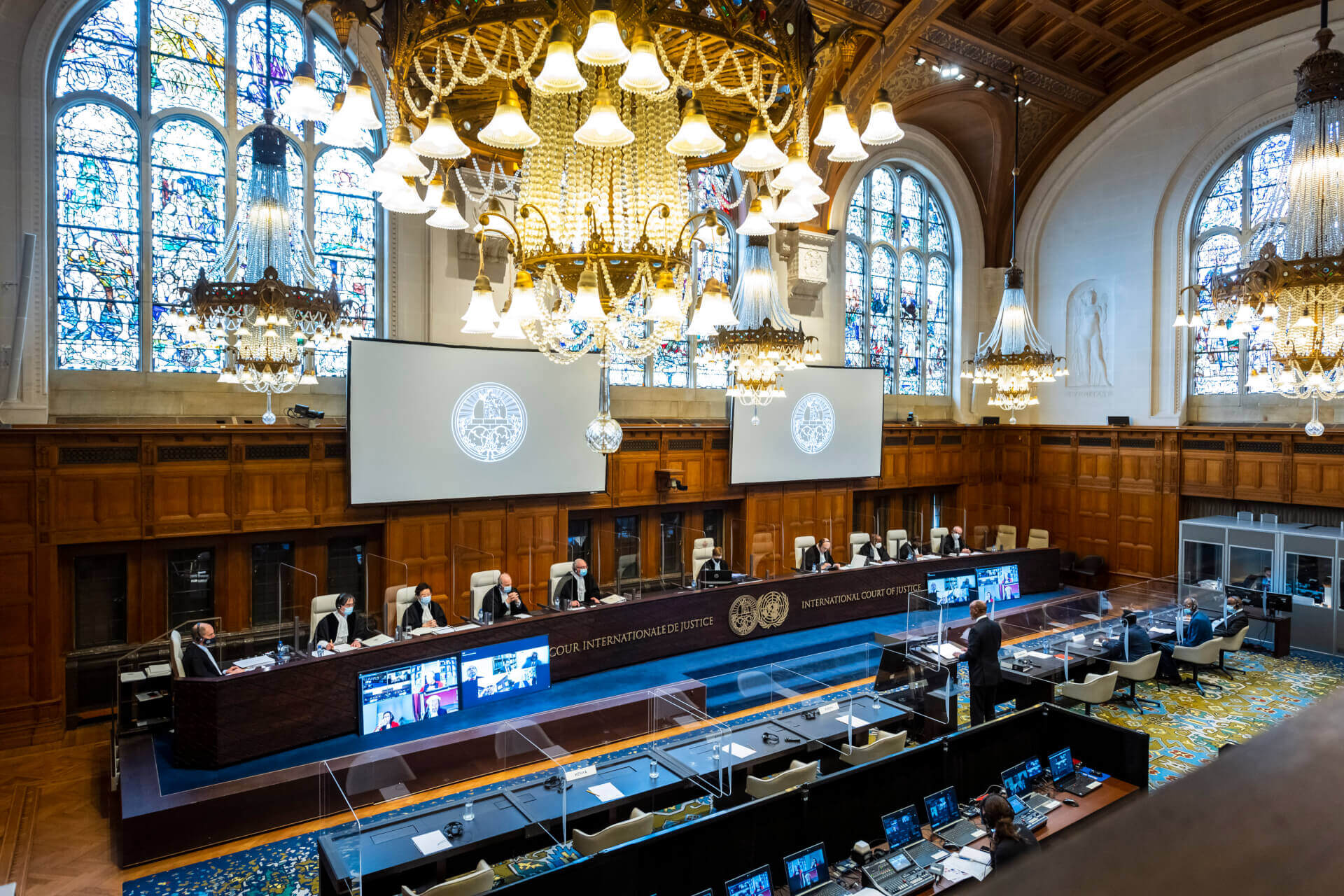The International Court of Justice (ICJ) has ruled largely in favour of Somalia in its maritime dispute with Kenya over a 100,000 square-kilometre zone in the Indian Ocean that is believed to contain oil and gas resources.
Kenya, however, already warned last Friday that it does not accept the jurisdiction of the ICJ on this matter, decrying the flawed judicial process” Its foreign ministry released a statement saying: “In addition to withdrawing its participation from the current case, Kenya... also joined many other members of the United Nations in withdrawing its recognition of the court's compulsory jurisdiction.”
Therefore, it came as little surprise that President Uhuru Kenyatta on Tuesday said that his administration “rejects in totality and does not recognise the findings in the decision.” He further said, “It will also reverse the social, political and economic gains; and potentially aggravate the peace and security situation in the fragile Horn of Africa Region.”
Somalia, on the other hand, welcomed the ruling, saying it was a product of Mogadishu’s “sacrifice and struggle,” and called on Kenya to “respect the international rule of law.” President Mohamed Abdullahi Farmaajo said on Facebook: “I thank Allah for ... for the fruit of the long struggle made by the Somalis in preventing Kenya’s desire to claim ownership of part of Somalia’s sea.”

A panel of 14 judges at The Hague posited that Kenya had not proven that Somalia had agreed to Kenya’s claim and that there was “no agreed maritime boundary.” Therefore, the judges drew a new line that has now split the disputed area in half. This line most closely resembles Somalia’s claim and denies Kenya’s claim to an area that contains a number of offshore oil blocks.
Judge Joan Donoghue described the ruling as an “equitable solution.” However, though the ruling is legally binding, the ICJ has no ability to enforce it. Moreover, given that Kenya has withdrawn its recognition of the court and its ruling, this dispute is no doubt far from resolved.
Kenya-Somalia Coverage:
- Kenya Appoints Envoy to Somaliland, Further Inflaming Tensions With Somalia
- Kenya Suspends Somalia Flights Just Days After Resuming Diplomatic Ties
- Kenya Orders UNHCR to Close Both of its Refugee Camps in the Country, Citing Terror Threat
- ICJ Begins Hearing on Kenya-Somalia Maritime Dispute, Kenya Refuses to Participate
- Somalia Rejects IGAD Report Exonerating Kenya of Interference in Jubaland
- https://www.statecraft.co.in/article/somalia-suspends-diplomatic-ties-with-kenya-over-interference-in-somaliland-and-jubaland
In March, the ICJ launched hearings for a maritime boundary dispute between Kenya and Somalia over 100,000 square kilometres of disputed maritime territory in the Indian Ocean. Somalia first filed a case with the ICJ in 2014.
Somalia’s maritime border claim continues along a “median line” from the two countries’ shared border, while Kenya argues that this border line extends horizontally from their border.
Kenya contends that since Somalia lodged no official protests between 1979 and 2014, the two countries had come to an informal agreement on where the border lies. However, the Court has now ruled that no such informal agreement exists.
There are a number of crucial oil and gas resources located off the coast of the Somalian state of Jubaland, which is home to the country’s port of Kismayo. In February 2019, Kenya recalled its ambassador to Mogadishu after Somalia attempted to auction oil and gas exploration blocks in the area. Kenya, too, already has licensed blocks in the disputed zone and the Somali government began offshore licensing projects in August 2020. Since the incident in 2019, however, Mogadishu has said that it will not offer licensing for any blocks in the disputed region until the ICJ rules on the matter.
Very early on, however, Kenya made its position clear and even refused to participate in the oral proceedings, saying it would only submit written evidence.
Kenya and Somalia are also embroiled in a number of other disputes, including allegations of Kenyan interference in Jubaland and Somaliland and Kenya’s closure of refugee camps that house a number of Somalis, which has strained diplomatic ties.

